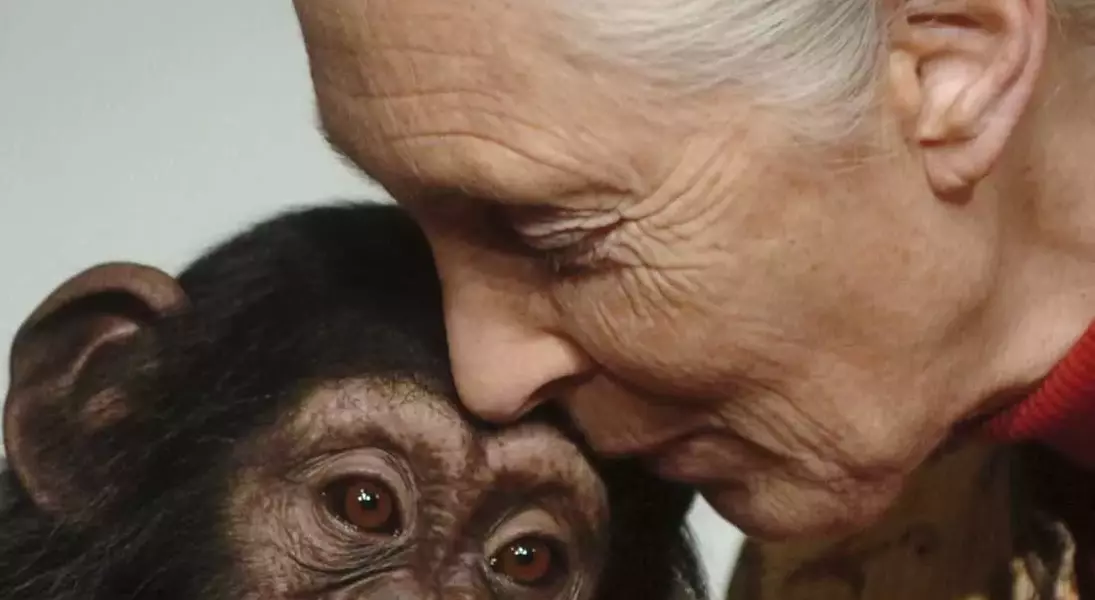
A poignant bronze sculpture titled \"The Red Palm Nut\" at Chicago's Field Museum immortalizes a pivotal moment in the life of celebrated primatologist and conservationist Jane Goodall. This artwork depicts a young woman, Goodall, sitting on the ground, extending her hand towards a chimpanzee. The chimpanzee, positioned a short distance away, gently grasps her fingers, a red palm nut resting between them. This scene represents the initial trust Goodall earned from a wild chimpanzee, an interaction she later recounted as a wordless communication of reassurance, fostering mutual understanding.
Goodall's journey began in her twenties, having saved money from waitressing in Bournemouth, England, to travel to Africa. There, she secured a position as an assistant to the esteemed anthropologist Louis Leakey. Despite her lack of formal higher education, Goodall convinced Leakey of her capability to live among and study a chimpanzee community near Lake Tanganyika. It was on a rainy morning in November 1960 that she observed David Greybeard, the chimpanzee featured in the sculpture, along with others, fashioning tools from twigs to extract and consume termites. This revolutionary discovery of tool-making in chimpanzees prompted Leakey's famous remark: \"We must now redefine man, redefine tools, or accept chimpanzees as humans.\" Goodall's observations fundamentally altered scientific perspectives on primate intelligence and behavior.
By the time of her passing at 91, Jane Goodall had garnered worldwide acclaim for her extensive research on chimpanzees and her dedicated humanitarian and environmental work. Her contributions led to the establishment of numerous animal sanctuaries and forest conservation initiatives globally. Her remarkable friendship with David Greybeard, which began with a simple gesture of trust, ultimately transformed human understanding of our intricate relationship with the natural world and the diverse beings inhabiting it.
The life and work of Jane Goodall stand as a powerful testament to the impact of empathy, perseverance, and a deep-seated respect for all forms of life. Her pioneering spirit not only expanded the boundaries of scientific knowledge but also ignited a global movement for conservation and ethical coexistence. Her legacy encourages us to recognize the interconnectedness of all living things and to strive for a future where humanity lives in harmony with the environment and its inhabitants, fostering a profound sense of responsibility and stewardship.
